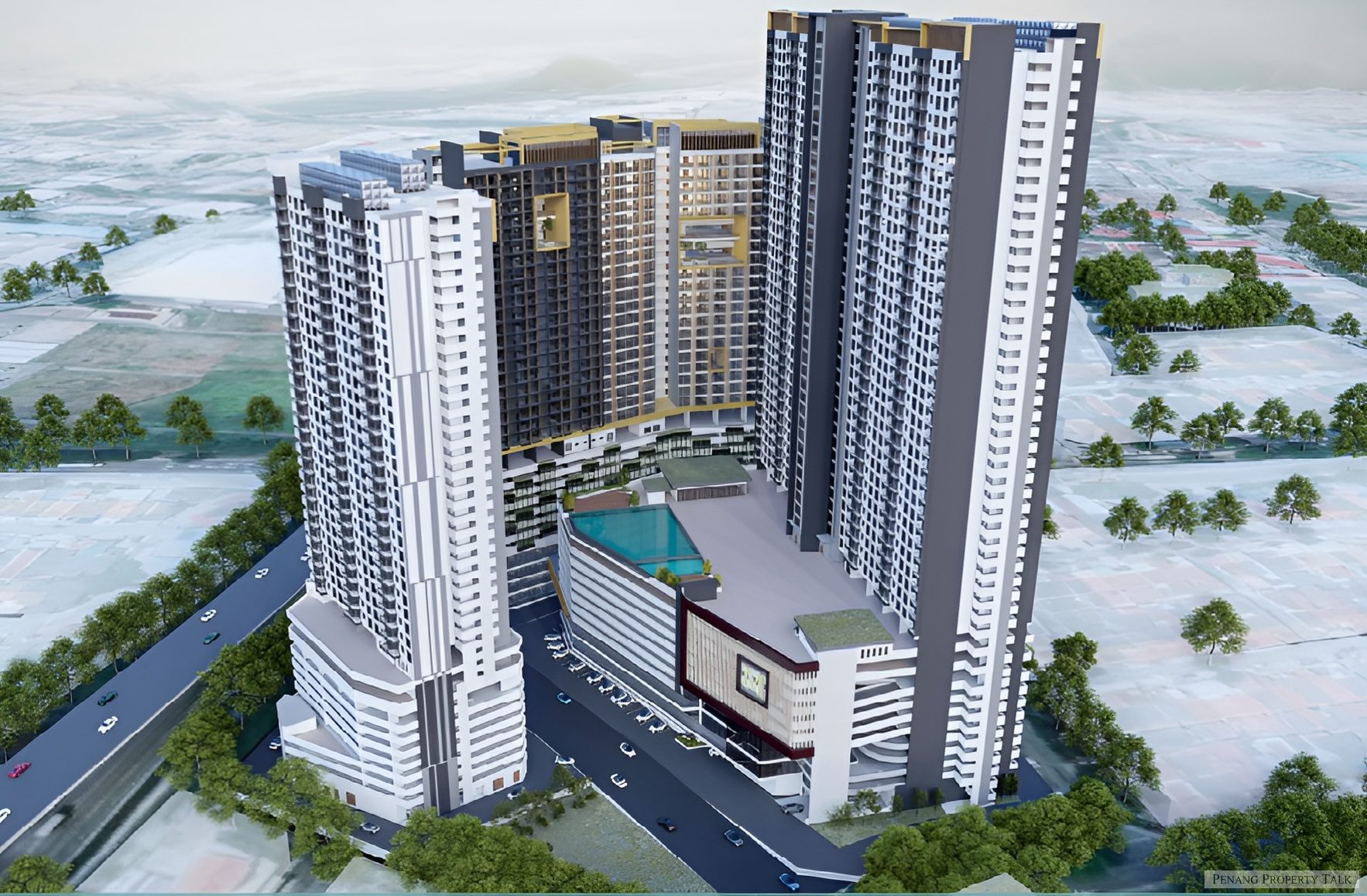Hunza leads Penang’s first urban renewal project worth RM600 million
Hunza Properties Bhd is spearheading Penang’s first urban renewal project—an ambitious RM600 million redevelopment of the Mahsuri Flats in Bayan Baru—without requiring a single resident to vacate their home during construction. This pioneering approach sets a new benchmark for community-first development in Malaysia.
Located on a 2.6-hectare site directly across from the Bayan Lepas Industrial Estate, the original five blocks of four-storey walk-up flats, built in 1976, will be replaced by three high-rise towers of 38, 46, and 33 storeys. The entire project aims to revitalise one of Penang’s most mature and densely populated neighbourhoods, increasing housing quality while making efficient use of under-utilised land.
Construction of the first tower, which will reach 38 storeys, began last month. This block will house 300 new “compensation units” to accommodate all current residents of the Mahsuri Flats. Only once this relocation is complete will the old buildings be demolished—a deliberate strategy designed to avoid the disruptions typically associated with urban renewal.
The new units will be significantly larger, ranging from 850 to 900 square feet, compared to the original flats that measured between 250 and 500 square feet. Residents will receive these upgraded homes at no additional cost, aside from legal title processing and standardised maintenance fees.
Following the relocation, the second phase will involve the construction of a 46-storey affordable housing block with 770 units, each measuring 881 square feet, alongside three floors of shop offices. The final phase will introduce a 33-storey serviced apartment tower with a mix of 500 to 1,055 square foot units and four additional floors of commercial space.
According to Penang state housing committee chairman Datuk Seri S. Sundarajoo, this development is not only about infrastructure—it represents a sustainable model of urban renewal that benefits all stakeholders. “It’s a win-win situation. Families get better homes, the developer benefits from marketable projects and the state recovers value from under-utilised land,” he said.
The total gross development value (GDV) of the project is RM597.84 million. It also forms part of a broader state initiative to revitalise ageing housing schemes across Penang, with four other sites identified for future renewal. However, such efforts face challenges, particularly the need for full consensus from residents and the complexities of temporary relocation in denser areas.
This project by Hunza exemplifies a forward-looking approach to housing development, combining vertical growth strategies with thoughtful community engagement. As Penang continues to confront land scarcity and the limitations of aging buildings, this urban renewal effort may serve as a blueprint for future redevelopment initiatives across Malaysia.



Good idea for urban renewal, but mentality of the residents will still be the same, not to mentioned the high cost of maintenance fee as well.
Surely this is the cost of gaining support from government in developing PICC